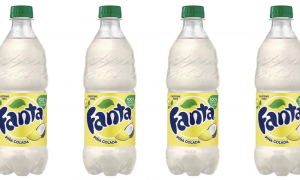meta 宣布它已经构建并开源了“No Language Left Behind”NLLB-200,这是一个单一的人工智能模型,它是第一个翻译 200 种不同语言的人工智能模型,其中包括 55 种非洲语言,具有最先进的结果。meta 正在使用该项目的建模技术和经验来改进和扩展 Facebook、Instagram 和 Wikipedia 上的翻译。
为了为世界上大多数低资源语言开发高质量的机器翻译功能,这个单一的人工智能模型的设计重点是非洲语言。从机器翻译的角度来看,它们具有挑战性。AI 模型需要大量数据来帮助他们学习,而这些语言的人工翻译训练数据并不多。例如,有超过 2000 万人在卢干达说和写,但这种书面语言的例子在互联网上很难找到。
We worked with professional translators for each of these languages to develop a reliable benchmark which can automatically assess translation quality for many low-resource languages. We also work with professional translators to do human evaluation too, meaning people who speak the languages natively evaluate what the AI produced. The reality is that a handful of languages dominate the web, so only a fraction of the world can access content and contribute to the web in their own language. We want to change this by creating more inclusive machine translations systems – ones that unlock access to the web for the more than 4B people around the world that are currently excluded because they do not speak one of the few languages content is available in.
Said meta CEO Mark Zuckerberg in a post on his Facebook profile: “It’s impressive how much AI is improving all of our services. We just open-sourced an AI model we built that can translate across 200 different languages — many of which aren’t supported by current translation systems. We call this project No Language Left Behind, and the AI modelling techniques we used are helping make high quality translations for languages spoken by billions of people around the world. To give a sense of the scale, the 200-language model has over 50 billion parameters, and we trained it using our new Research SuperCluster, which is one of the world’s fastest AI supercomputers. The advances here will enable more than 25 billion translations every day across our apps. Communicating across languages is one superpower that AI provides, but as we keep advancing our AI work it’s improving everything we do — from showing the most interesting content on Facebook and Instagram, to recommending more relevant ads, to keeping our services safe for everyone.”
Language is our culture, identity, and lifeline to the world. However, as high-quality translation tools don’t exist for hundreds of languages, billions of people today can’t access digital content or participate fully in conversations and communities online in their preferred or native languages. This is especially true for hundreds of millions of people who speak the many languages of Africa.
Balkissa Ide Siddo, Public Policy Director for Africa said while speaking about the launch of the AI model: “Africa is a continent with very high linguistic diversity, and language barriers exist day to day. We are pleased to announce that 55 African languages will be included in this machine translation research, making it a major breakthrough for our continent. In the future, imagine visiting your favourite Facebook group, coming across a post in Igbo or Luganda, and being able to understand it in your own language with just a click of a button – that’s where we hope research like this leads us. Highly accurate translations in more languages could also help to spot harmful content and misinformation, protect election integrity, and curb instances of online sexual exploitation and human trafficking.”
While commenting on accessibility and inclusion in the pursuit of building an equitable metaverse, Ide Siddo said: “At meta, we are working today to ensure that as many people as possible will be able to access the new educational, social and economic opportunities that the next evolution of the internet will bring to future technology and an everyday living experience tomorrow.”
To confirm that the translations are high quality, meta also created a new evaluation dataset, FLORES-200, and measured NLLB-200’s performance in each language. Results revealed that NLLB-200 exceeds the previous state of the art by an average of 44%.
meta is also open-sourcing the NLLB-200 model and publishing a slew of research tools to enable other researchers to extend this work to more languages and build more inclusive technologies. meta AI is also providing up to $200,000 of grants to non-profit organisations for real world applications for NLLB-200.
There are versions of Wikipedia in more than 300 languages, but most have far fewer articles than the 6+ million available in English. Following meta’s partnership with the Wikimedia Foundation, the non-profit organisation that hosts Wikipedia and other free knowledge projects, modelling techniques and learnings from the NLLB research are now also being applied to translation systems used by Wikipedia editors. Using the Wikimedia Foundation’s Content Translation Tool, articles can now be easily translated in more than 20 low-resource languages (those that don’t have extensive datasets to train AI systems), including 10 that previously were not supported by any machine translation tools on the platform.
要探索 NLLB-200 演示,展示该模型如何翻译来自世界各地的故事,请访问此处。你也可以在这里阅读研究论文。







